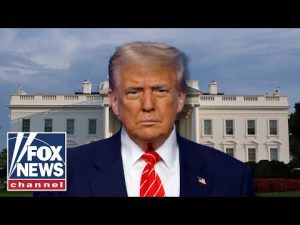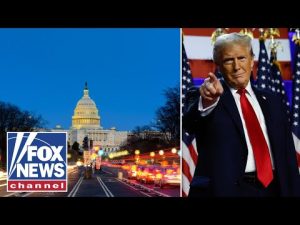President Joe Biden has created quite the stir with his recent decision to pardon his son, Hunter Biden, on gun and tax-related charges. This move comes after the president pledged that he wouldn’t be extending any pardons to his son. So, it seems that this promise has gone the way of many political pledges—straight out the window. This raises significant concerns about accountability and transparency, especially regarding the Biden family’s longstanding pattern of leveraging political power for personal gain.
From the very start of his political career, President Biden has been embroiled in controversy surrounding the financial dealings of his family. Each election season, stories emerge that his relatives have used his name as a pathway to access lucrative contracts and deals. Be it his brothers or his son, it appears that the Biden family tree is not just rooted in politics but is also filled with branches of financial opportunities, often at the taxpayers’ expense.
Hunter Biden has been at the center of many of these controversies, notorious for cashing in on overseas connections. His involvement with the Ukrainian energy company, Burisma, and suspicious ties to China have raised eyebrows far and wide. The emails found on Hunter’s laptop, which suggest dubious dealings, have led many to believe that he wasn’t operating alone. If anything, they indicate a culture of corrupt practices within the Biden family, where political influence meets personal profit. It’s no surprise that citizens are questioning the integrity of a president whose family has thrived under such questionable circumstances.
Moreover, the reaction from mainstream media and the intelligence community has not gone unnoticed. When the story of Hunter’s laptop emerged, the allegations were quickly dismissed as “Russian disinformation.” This raises an essential question: if the evidence is so clear, why was there an effort to cover it up? The notion that a sitting president would allow his administration to downplay damaging revelations is concerning. It paints a picture of a political elite that operates outside of the law, operating under a different set of rules where the average American wouldn’t stand a chance.
At this stage, the pardoning of Hunter Biden acts as a glaring symbol of a two-tiered justice system. If the president is willing to shield his son from accountability, what message does that send about the rule of law in America? The core of conservatism advocates for accountability and equal treatment for all under the law. Therefore, Americans should be on high alert, recognizing that political connections can distort the very fabric of justice. It may appear humorous that a politician who continually espouses integrity and transparency is found engaging in actions that contradict those ideals. Yet, the implications are serious. In pursuing such arrangements, President Biden risks not just his credibility but also the trust of the American people who expect better from their leaders.







